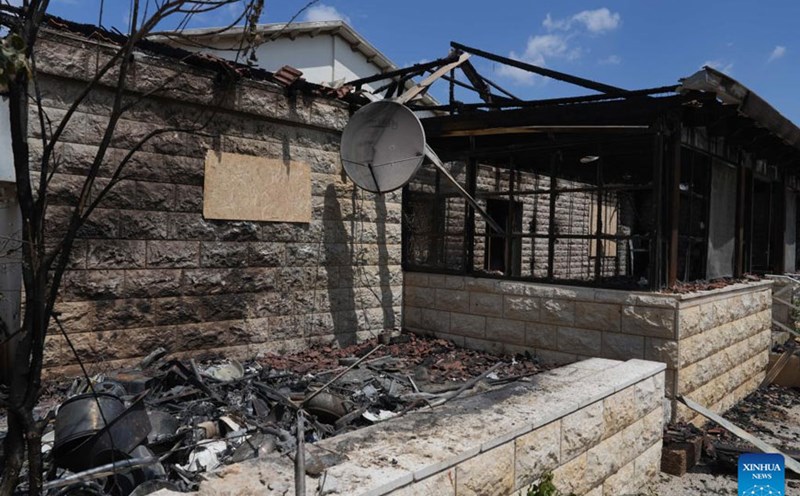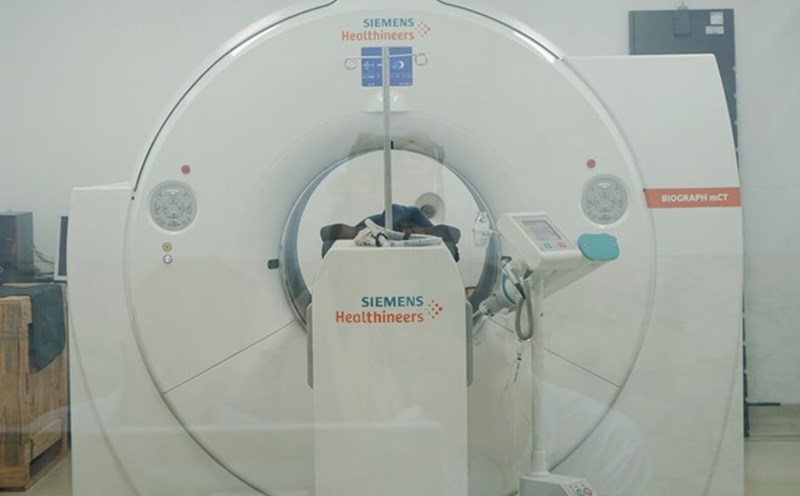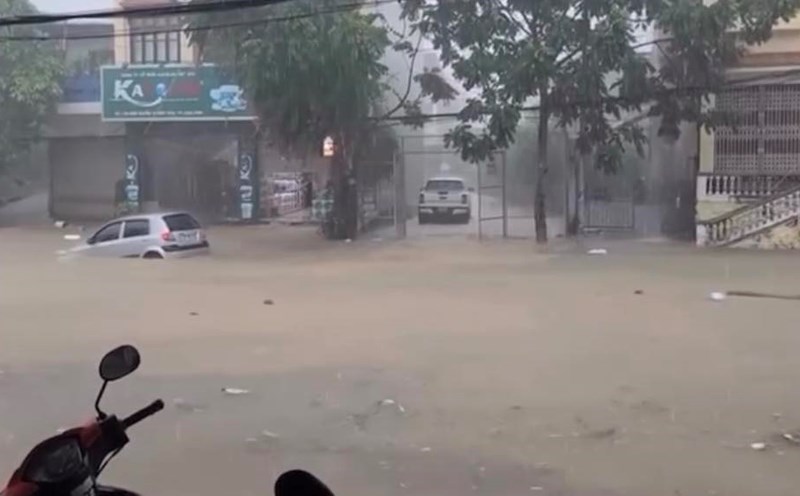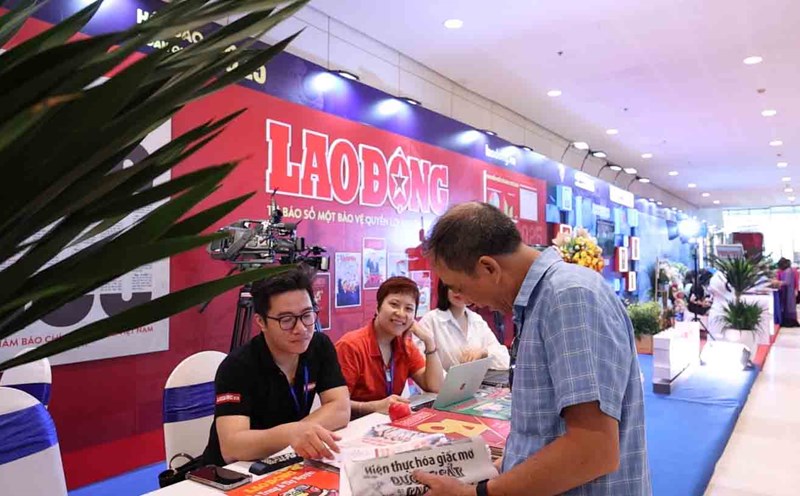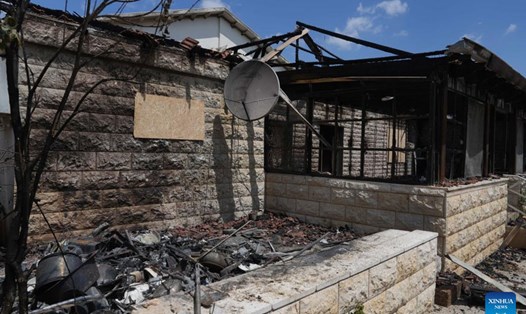Beirut - City without warning horns
At that time, I only had time to text my producer: SOS, the police are here, photo reporter George Moutafis (working for German newspaper Bild, Welt) recalled the moment he was arrested by Lebanese security forces at a hotel in central Beirut. He and his German colleague were continuously questioned and detained for more than 12 hours, part of which he was blindfolded. The camera was confiscated. " hardened to check. In the end, they were released without any official explanation.
For foreign reporters, it is not uncommon for them to work in Lebanon, where fighting between Hezbollah and Israel is escalating day by day, and for journalists to become unofficial targets for both sides. No alarm bells. No shelter. No safe zone. nothing can protect you other than caution, experience, and sometimes... luck.
Lebanon is a country with many complex political levels. Working here not only requires courage, but also requires a deep understanding of the forces that are dominating the field. In particular, Hezbollah - an Iranian-backed Shiite Hoi giao armed group - controls much of southern Lebanon and the southern suburbs of the capital Beirut. They do not want the presence of foreign press in those regions. For them, journalists can be spies, said an unnamed Middle East reporter.
After October 7, 2023, when the Israel-Hamas conflict broke out in Gaza, Hezbollah began to increase shelling from southern Lebanon to northern Israel, leading to fierce airstrikes in retaliation. Since then, the border area has become a banned area for journalism. We have been stopped by military checkpoints, or tracked by militia since leaving Beirut, a German reporter said.
According to the World Press freedom Index 2024 Report of the Reporters Without Border Federation (RSF), Lebanon ranks 140th out of 180 countries. Reason: Domestic media is tightly controlled by political groups, ethnic groups, and armed forces. Some local journalists were threatened, attacked, or lost their jobs for reporting false information.
Nada Homsi, a Lebanese-American reporter for The National (UAE), was arrested in 2021 for contacting Syrian refugees - a topic extremely sensitive to the Lebanese government. "I was detained for nearly a month on suspicion of illegal press work. It was a shock I will never forget, she said.
No "death exemption card" for international journalists
Unlike Ukraine or Israel - where the press is often given minimal military support or has a rescue system, in Lebanon, reporters are the ones who take full responsibility for their own safety. No alarm bells. No warning app on your phone. No Shelter" - Alexia Kalaitzi, a Greek reporter working for ERT and Kathimerini, shared.
Traveling between areas in Lebanon - from the center of Beirut to neighboring areas such as Tyre, Nabatieh or Marjayoun, requires reporters to have a local logistics team that understands the area, often called "fixes" - silent, unofficial collaborators but play a vital role.
You cant be a journalist in Lebanon without fixer. They are your eyes, ears and legs, said Alexia Kalaitzi. They know who to avoid, what to say, and especially why not film anything.
A good fixer can earn between $200 and $400 a day - a high payment compared to the average income in Lebanon - but the price to pay is safety. They dont have press cards, they dont have international insurance, but they are the first to aim for bullets if something happens, Homsi added.
Some fixers are former journalists, scholars, or even members of the militia, who understand how to move, how to ask for permission, and how to "disappear" if necessary.
"Gray zones" not for the press
One of the most restrictive press areas is Dahieh in the southern suburbs of Beirut, which is considered a "c headquarters" of Hezbollah.
We were allowed to film for 1.5 hours, with people following and supervising us continuously, Kalaitzi said. "No interviews. No casualties were asked. cannot film a damaged house without consent.
Similarly, approaching the southern border requires licenses from many parties: the Ministry of Information, the Lebanese army, and Hezbollah representatives, but there is often no official process. Its allowed today, it can be arrested tomorrow, a fixer in Tyre said. Sometimes just because you film a broadcast station, they will accuse you of spying for the Israeli Intelligence Service.
According to the Reporters Without Border Federation (RSF), three journalists have been killed in airstrikes in southern Lebanon since October 2023. Notably, the attack on Reuters and Al Jazeera press groups near the Marjayoun border killed Issam Abdallah on the spot.
They wore an PRESS bulletproof shirt, standing hundreds of meters away from the military target, but were still targeted, the RSF concluded after an independent investigation. Israel has never admitted.
One side will always be angry with you, no matter how neutral you are, said George Moutafis. In the war zone, the press is no longer an outsider. We are considered potential enemy.
RSF opened a regional Press freedom Center in Beirut in March 2024, in collaboration with the Samir Kassir Foundation - which provides protection equipment, survival skills training and legal support for working reporters. However, the biggest risk is still: No way out.
You never know when there will be a flight out of Lebanon, Kalaitzi said. During the days of the tense conflict, many airlines have canceled all flights. At that time, we only relied on the evacuations of the embassy.
Journalism in Lebanon is not for the weak
However, there are still dozens of international journalists in Beirut, ready to rush into hot spots to record the pieces of the conflict that the world has forgotten. From homeless children in Tyre to mothers waiting to hear about their children after an airstrike on Bint Jbeil, they need the media's voice more than ever.
In war zone, journalism is the goal. When the camera lens turned towards the fire clouds in the South, when the microphone reached the roar of firecrackers - that was the time when the press really entered the battlefield. Not to be a hero, but to tell the truth, even if it is worth freedom, even life" - Moutafis confided.


